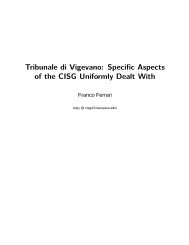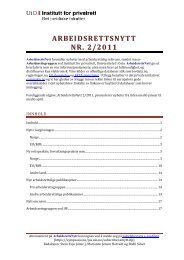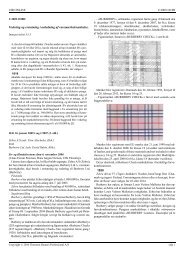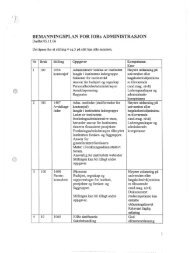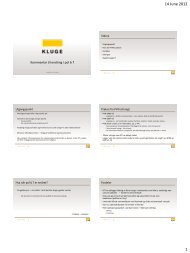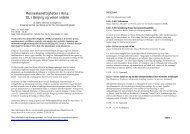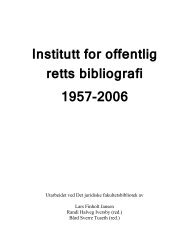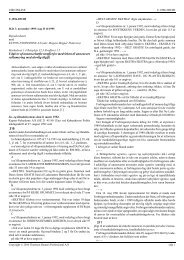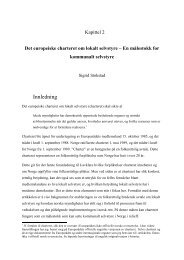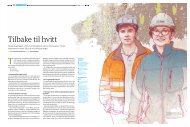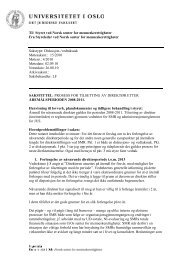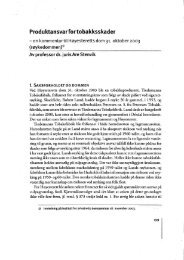Lee A. Bygrave (red.) YULEX 2002 - Universitetet i Oslo
Lee A. Bygrave (red.) YULEX 2002 - Universitetet i Oslo
Lee A. Bygrave (red.) YULEX 2002 - Universitetet i Oslo
You also want an ePaper? Increase the reach of your titles
YUMPU automatically turns print PDFs into web optimized ePapers that Google loves.
............................................................................<br />
40 <strong>Lee</strong> A. <strong>Bygrave</strong><br />
complaint differently from each other, with the decision by TrustE being<br />
more favourable to eBay. The latter then allegedly threatened to withdraw<br />
from the BBBOnline program if BBBOnline did not change its initial decision.<br />
BBBOnline apparently succumbed to the threat and substituted a new decision<br />
for its first decision (using the same docket number as the initial decision:<br />
2000-03). The new decision evidently reads that the complaint has been<br />
resolved but provides no further details. 26 And the first decision has evidently<br />
been withdrawn from public view on the Internet.<br />
The eBay case indicates that business membership of two (or more) competing<br />
seal programs with separate dispute resolution schemes may be inappropriate,<br />
though (as Gellman points out) we cannot judge whether the result<br />
of the eBay case was fair as we do not know the exact nature of the decision<br />
reached by TrustE in that case. It could be that, objectively, the TrustE decision<br />
was the better one, such that BBBOnline’s vacation of its original decision<br />
was proper. Yet the case illustrates the potential for businesses with<br />
considerable commercial clout to encourage what are for them sympathetic<br />
arbitration outcomes by threatening withdrawal from an arbitration scheme.<br />
How, then, could we go about countering the potential for businesses to<br />
pressure ODR-providers into facilitating business-friendly outcomes? The<br />
existing sets of standards provide little guidance apart from the obvious “feelgood”<br />
admonitions that ADR schemes operate independently, impartially etc.<br />
The most direct solution is to cut back the operation of marketplace dynamics<br />
in the provision of B2C ODR. That means minimising the extent to which<br />
B2C ODR schemes are set up and run essentially as business ventures with a<br />
profit-taking concern. Concomitantly, it means minimising the financial dependency<br />
of B2C ODR-providers on funding from a small number of businesses<br />
that have large economic clout. It might also mean providing more<br />
public/government sponsorship of dispute resolution schemes. Alternatively,<br />
it could mean providing greater business sponsorship but on an industry-wide<br />
basis, wherein members of an industry association establish and fund one<br />
dispute resolution scheme for the industry concerned. The latter option remains<br />
vulnerable to the potential for business bias, yet arguably the experience<br />
with some industry-sponso<strong>red</strong> ombudsman schemes (eg, for the banking<br />
or telecommunications sectors within a particular country) shows that broadbased<br />
business funding does not necessarily compromise the impartiality of<br />
complaints resolution.<br />
26<br />
I have been unable to find the decision on the BBBOnline website and am relying on Gellman’s<br />
report (op cit) of the facts.



